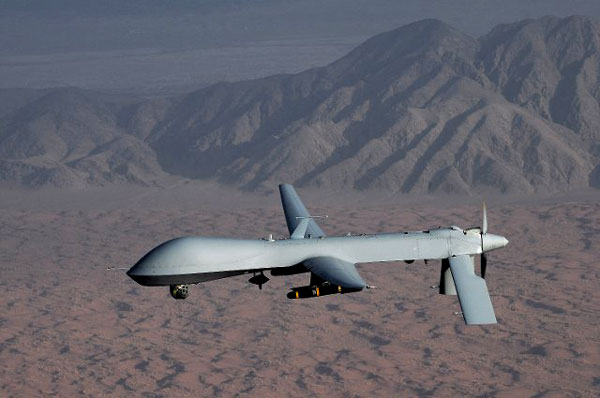It was welcome news that a U.S.-launched drone strike killed Hakimullah Mehsud, the leader of Tehrik-e-Taliban (TTP) who was responsible for slaughtering thousands of Pakistanis and wanted for his involvement in the 2009 attack on a U.S. forward-operating base in Afghanistan that killed seven CIA officials, but some in the Pakistani government were not pleased with the strike.
Pakistani Interior Minister Chaudhry Nisar Ali Khan initially condemned the U.S. strike, claiming that it ruined prospects for a potential peace agreement between the TTP and the government. The Chinese government claimed that Pakistani sovereignty had been violated.
While Mehsud had recently stated his openness to dialogue with Islamabad, the prospects for such talks were always in question. In testimony delivered to a House subcommittee hearing last month, Heritage Foundation senior research fellow on South Asia Lisa Curtis expressed her skepticism:
It is unclear what the two sides would discuss since Mehsud made clear that one of the TTP’s main goals is to wage jihad against the “infidel” system of governance in Pakistan.… [S]ome Pakistani commentators have expressed skepticism about efforts to engage the TTP and see the government’s offer as a sign of weakness in the face of escalating attacks.
Others have also voiced skepticism that peace talks would have materialized. Veteran Pakistani journalist and author Zahid Hussain condemned the Pakistani government’s reaction to Mehsud’s death. Hussain advised the government instead to capitalize on Mehsud’s death, which presents a golden opportunity to further incapacitate the TTP.
While drone strikes have recently been subjected to additional scrutiny and criticism, one cannot argue with their effectiveness or their place in the war on terrorism. The U.S. has recently reduced the number of drone strikes in Pakistan, but they remain an indispensable tool for fighting al-Qaeda and its associates. With the U.S. drawing down forces in Afghanistan and Pakistan’s tribal border areas still serving as a sanctuary for a host of terrorist groups, the U.S. will likely rely on drones to address regional terrorist threats for several years to come.
Until Pakistani leaders take steps to ensure that their country is no longer a sanctuary for terrorists, the drone program will be necessary. As Curtis noted in July, “The extent to which the United States will continue to rely on drone strikes ultimately depends on Islamabad’s willingness to develop more decisive and comprehensive counterterrorism policies that include targeting groups like the Haqqani Network.”
Drones are an important tool, but they are not a panacea in the fight against terrorism. With al-Qaeda increasingly relying on local affiliates to carry out violent attacks, the U.S. will need to engage in a multi-pronged effort to stay ahead of the threat.
Matthew Rolfes is currently a member of the Young Leaders Program at The Heritage Foundation. For more information on interning at Heritage, please click here.



























